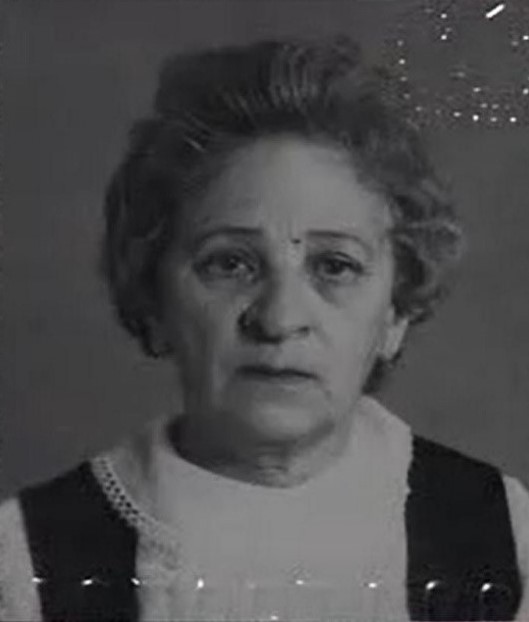Lidiya Unkovskaia was born in 1916 in Poltava, Ukraine, as Ida Goldina. She was one of three sisters. Her father Ruvim was a pharmacist. He died in 1920, and her mother remarried. In 1930, the family moved to Bakhchisarai in the Crimea. They were superficially traditional – at least, they celebrated the Jewish holidays, were bilingual in Russian and Yiddish, and had some attraction to the land of "Palestine". In 1933, Ida enrolled in the newly established Medical Institute (University) in Simferopol, the major city in the Crimea, from which she graduated in 1937. She went on to work in the Soviet Far East. In 1939, the local recruitment office sent Ida to Leningrad (present-day St. Petersburg) to study surgery. Almost immediately, she was drafted to fight in the Soviet-Finnish (Winter) War of 1939-40. Ida served at a rear hospital; after the end of that war, in May 1940, she was discharged from the army.
At the time of the outbreak of the Soviet-German War in June 1941, Ida Unkovskaia lived in her husband's native town in the Kursk Region in southern Russia, where she worked as the head of the maternity ward at a local hospital. On July 16, she was drafted into the Red Army and attached to the 307th medical-sanitary battalion (medsanbat) of the 399th Rifle Regiment (50th Army, Western Front). Ida became the commander of a surgical platoon in this medsanbat. She began her military service in the area of Briansk and Smolensk, southwest of Moscow, during the general retreat of the Red Army. In October 1941, Ida's medical battalion was surrounded by the enemy, and on October 15 she was taken prisoner, along with other medical servicepersons, in the Kaluga region south of Moscow. It was at the POW camp that she began to pass herself off as "Lidiya Unkovskaia." None of her fellow prisoners denounced her as a Jew. In November 1941, Lidiya managed to escape from the camp. After a while, she joined the Soviet partisans, quickly becoming one of the most important physicians of the Shchors partisan brigade, and serving as head of the medical service of its "Lazo" unit. Her highest wartime rank was that of lieutenant.
In September 1943, the area of operations of the "Shchors" partisan brigade (the Briansk Region) was liberated by the Soviets, and most of the partisans were drafted into the Red Army. Lidiya was dispatched to Briansk, to restore the hospital in the village of Vygonichi, ten kilometers southwest of the city of Briansk. Lidiya Unkovskaia went on to work as a doctor in the Briansk Region for the rest of her life.
In the course of the war, Unkovskaia was awarded the Order of the Red Star and a number of medals, including the medal "Partisan of the Patriotic War," 2nd class. Although she kept her childhood affection for the Land of Israel, she refused to immigrate there, citing her advanced age (many of her relatives settled in Israel in the 1970s-90s).
Lidiya Unkovskaia died in 2007.







